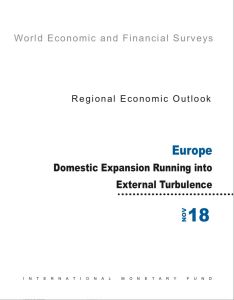
Read or listen offline
auto-generated audio
1×
auto-generated audio
Recommendation
The pace of growth in Europe’s advanced economies decelerated in 2018, a trend expected to continue into 2019, according to this detailed IMF analysis intended for economists and policy experts. A more hostile trade environment, the prospect of a failed Brexit deal, costlier energy, more volatile emerging markets and slowing global demand are some of the headwinds the region is battling. Against this backdrop of lower but still solid economic activity, the IMF advises that the time is right for officials to take measures to shore up their economic defenses.
Take-Aways
About the Author
The International Monetary Fund advises member nations on policy issues and works to promote economic stability and well-being.
By the same author
Report
Report
Report
Report
Report
Report
Report

































Comment on this summary or Start Discussion